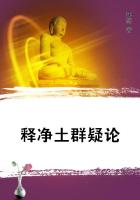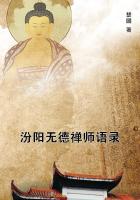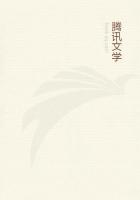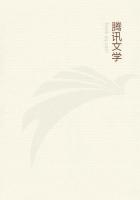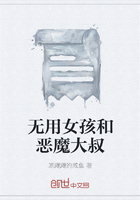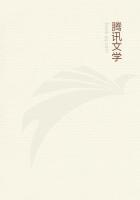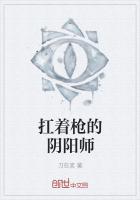Godfrey was fond of poetry; it bored Isobel. His tendencies were towards religion though of a very different type from that preached and practised by his father; hers were anti-religious. In fact she would have been inclined to endorse the saying of that other schoolgirl who defined faith as "the art of believing those things which we know to be untrue," while to him on the other hand they were profoundly true, though often enough not in the way that they are generally accepted. Had he possessed any powers of definition at that age, probably he would have described our accepted beliefs as shadows of the Truth, distorted and fantastically shaped, like those thrown by changeful, ragged clouds behind which the eternal sun is shining, shadows that vary in length and character according to the hour and weather of the mortal day.
Isobel for her part took little heed of shadows. Her clear, scientific stamp of mind searched for ascertainable facts, and on these she built up her philosophy of life and of the death that ends it. Of course all such contradictions may often be found in a single mind which believes at one time and rejects at another and sees two, or twenty sides of everything with a painful and bewildering clearness.
Such a character is apt to end in profound dissatisfaction with the self from which it cannot be free. Much more then would one have imagined that these two must have been dissatisfied with each other and sought the opportunities of escape which were open to them. But it was not so in the least. They argued and contradicted until they had nothing more to say, and then lapsed into long periods of weary but good-natured silence. In a sense each completed each by the addition of its opposite, as the darkness completes the light, thus ****** the round of the perfect day.
As yet this deep affection and remarkable oneness showed no signs of the end to which obviously it was drifting. That kiss which the girl had given to the boy was pure sisterly, or one might almost say, motherly, and indeed this quality inspired their relationship for much longer than might have been expected. So much was this so that no one connected with them on either side ever had the slightest suspicion that they cared for each other in any way except as friends and fellow pupils.
So the years went by till the pair were seventeen, young man and young woman, though still called boy and girl. They were good-looking in their respective ways though yet unformed; tall and straight, too, both of them, but singularly dissimilar in appearance as well as in mind. Godfrey was dark, pale and thoughtful-faced. Isobel was fair, vivacious, open-natured, amusing, and given to saying the first thing that came to her tongue. She had few reservations; her thoughts might be read in her large grey eyes before they were heard from her lips, which generally was not long afterwards. Also she was very able. She read and understood the papers and followed all the movements of the day with a lively interest, especially if these had to do with national affairs or with women and their status.
Business, too, came naturally to her, so much so that her father would consult her about his undertakings, that is, about those of them which were absolutely above board and beyond suspicion of sharp dealing. The others he was far too wise to bring within her ken, knowing exactly what he would have heard from her upon the subject. And yet notwithstanding all his care she suspected him, by instinct, not by knowledge. For his part he was proud of her and would listen with pleasure when, still a mere child, she engaged his guests boldly in argument, for instance a bishop or a dean on theology, or a statesman on current politics. Already he had formed great plans for her future; she was to marry a peer who took an active part in things, or at any rate a leading politician, and to become a power in the land. But of this, too, wisely he said nothing to Isobel, for the time had not yet come.
During these years things had prospered exceedingly with John Blake who was now a very rich man with ships owned, or partly owned by him on every sea. On several occasions he had been asked to stand for Parliament and declined the honour. He knew himself to be no speaker, and was sure also that he could not attend both to the affairs of the country and to those of his ever-spreading business. So he took another course and began to support the Conservative Party, which he selected as the safest, by means of large subscriptions.
He did more, he bought a baronetcy, for only thus can the transaction be described. When a General Election was drawing near, one evening after dinner at Hawk's Hall he had a purely business conversation with a political Whip who, perhaps not without motive, had been complaining to him of the depleted state of the Party Chest.
"Well," said Mr. Blake, "you know that my principles are yours and that I should like to help your, or rather our cause. Money is tight with me just now and the outlook is very bad in my trade, but I'm a man who always backs his fancy; in short, would ā15,000 be of use?"
The Whip intimated that it would be of the greatest use.
"Of course," continued Mr. Blake, "I presume that the usual acknowledgment would follow?"
"What acknowledgment?" asked the Whip sipping his port wearily, for such negotiations were no new thing to him. "I mean, how do you spell it?"
"With a P," said Mr. Blake boldly, acting on his usual principle of asking for more than he hoped to get.
The Whip contemplated him through his eyeglass with a mild and interested stare.
"Out of the question, my dear fellow," he said. "That box is full and locked, and there's a long outside list waiting as well. Perhaps you mean with a K. You know money isn't everything, as some of you gentlemen seem to think, and if it were, you would have said fifty instead of fifteen."
"K be damned!" replied Mr. Blake. "I'm not a mayor or an actor-manager. Let's say B, that stands for Beginning as well as Baronet; also it comes before P, doesn't it?"

